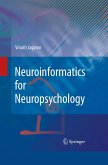The human immunodeficiency virus (HIV) commonly enters the central nervous system, disturbs brain function, and ultimately results in serious brain damage. The most dangerous manifestation of this infection of the brain is HIV-associated dementia, which includes extreme memory loss, slowness in thinking, disorientation, and social incapacity. Most persons who are HIV-infected do not develop severe dementia; however, perhaps 50% of those with AIDS and a smaller proportion of HIV-infected carriers suffer from more subtle brain disorders that can be revealed by proper neuropsychological testing. This ground-breaking volume is the first to summarize the current state of knowledge about the neurocognitive disorders associated with HIV-1 infection. With contributions from leading authorities in the field, the book fully discusses the prevalence, qualitative features, natural course, and effects of neuropsychological impairments in persons with HIV infection. Neuropsychological data are related to findings from studies of brain imaging, neuropathology, and the effects of antiretroviral treatments. This critical work will be essential for neuropsychologists, infectious disease physicians, neurologists, and all those involved in AIDS research and treatment.
Hinweis: Dieser Artikel kann nur an eine deutsche Lieferadresse ausgeliefert werden.
Hinweis: Dieser Artikel kann nur an eine deutsche Lieferadresse ausgeliefert werden.








